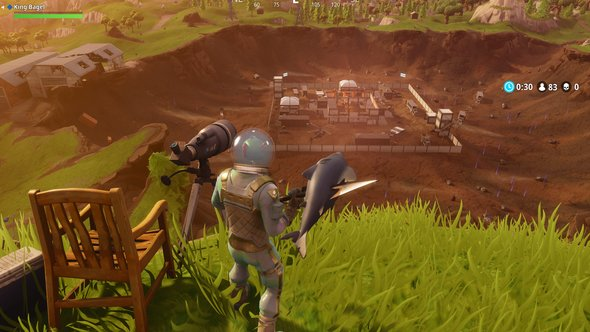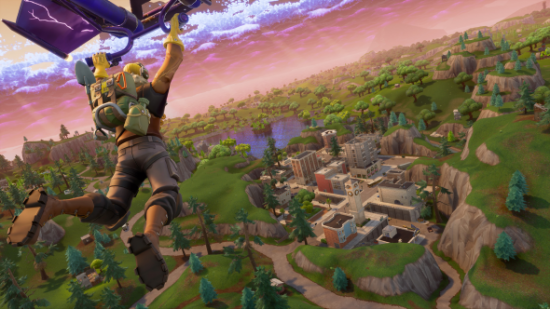There are very few games that have captured the public’s attention quite like Fortnite. Initially dismissed by many as a clone of PlayerUnknown’s Battlegrounds, Fortnite quickly rose to prominence thanks to its unique spin on the battle royale formula. Being able to quickly assemble structures for both defensive and offensive purposes turns every fight into an elaborate chess game. Couple this with the continual flow of new cosmetics and it’s easy to see why Fortnite is so successful. One contributing factor that doesn’t get enough credit, however, is the wonderful way developers Epic Games handle the world.
Here’s everything you need to know about Fortnite Season 4.
Despite releasing back in September 2017, Fortnite hasn’t received a single new map. This is in stark contrast to their main competitor, PUBG, which currently has three theatres to gad about in. Instead, Fortnite ingeniously continues to develop and add to its single world. Whether it’s through tiny changes or the complete annihilation of a beloved location, Fortnite has made its island a character within the game.

Rather than simply a backdrop for chaotic matches, Fortnite’s island is woven with small storytelling moments throughout. What began as some odd controller vibrations – which turned out to be Morse Code – grew into a wild conspiracy revolving around the controversial drop point, Tilted Towers. Speculations ran wild as some hypothesized that this location was going to be removed from the game. It seemed far fetched at the time, especially since massive map alterations aren’t common for a multiplayer game. However, the clues started piling up and soon it was impossible to ignore the feeling that something big was coming to Fortnite.
All bets were off when comets began raining from the sky during matches. These meteors were impossible to ignore since they directly affected gameplay by crashing into the environment. It was a major gamble to introduce such an odd mechanic, but it worked brilliantly. Not only did this lend a feeling of unpredictability, but it gave Fortnite’s world a sense of progression. Unlike PUBG or H1Z1, where the worlds remain static, Fortnite is continually evolving. We still don’t know why everyone is fighting, granted, but details like this aren’t important when there are giant rocks raining from the sky and people using all manner of ridiculous weapons on top of a flashy, new Port-a-Fort.

Fortnite is a B-movie transformed into a videogame and, like any good drive-in film, it doesn’t waste time on the details. Instead, the broad-strokes approach to storytelling results in a more engaging experience that doesn’t compromise gameplay. You can still enjoy exploring the tonnes of secrets and hidden locations scattered throughout the map, but such excursions aren’t necessary to enjoy the game – they simply add an extra layer of depth to Fortnite. It is this simplicity and willingness to run with an idea that helps the game stand above its competition.
There is always something more going on (seriously, have you seen these giant dinosaur tracks?), but it’s up to players to uncover it. You can invest as much or as little time as you like weaving through the various theories permeating Fortnite’s organically emerging lore – where other battle royale games focus facilitating little more than a skirmish, Epic Games go the extra mile. The studio have crafted a unique experience unlike anything else the genre has to offer.
